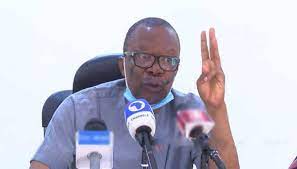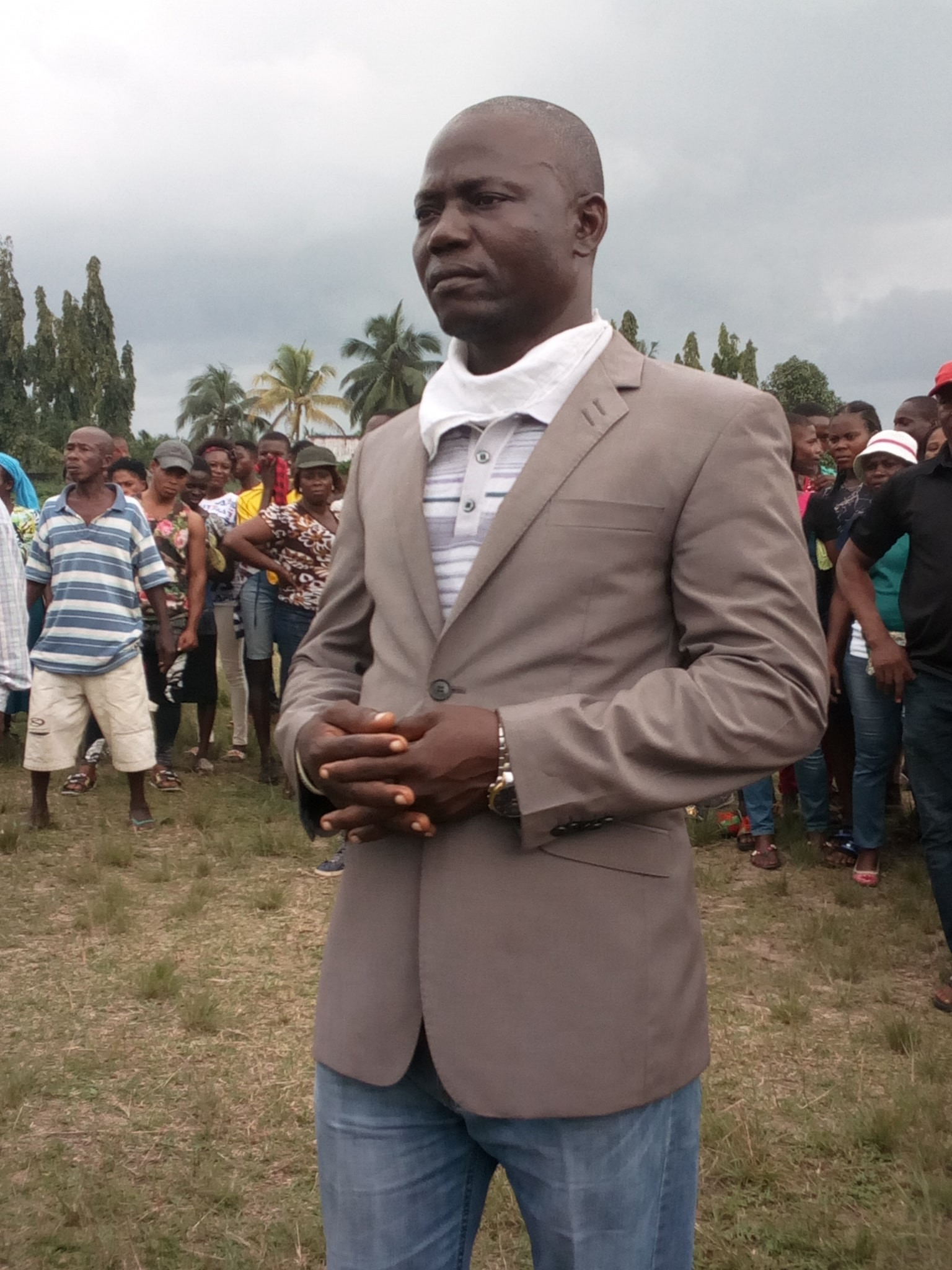The Academic Staff Union of Universities (ASUU) has raised concerns regarding the ongoing withholding of nearly eight months’ worth of salaries for university academics, which is attributed to the 2022 strike action initiated by the union.
In a statement released and signed by ASUU President Emmanuel Osodeke, this matter stands as just one among the numerous challenges afflicting the Nigerian University System (NUS). The issue was thoroughly discussed during the National Executive Council meeting at the University of Maiduguri in Borno State, held from Saturday, August 19th to Sunday, August 20th, 2023.
Emphasizing the point, President Emmanuel Osodeke reiterated ASUU NEC’s stance that the enforcement of the anti-labor ‘No-Work-No-Pay’ policy on academics overlooks two undeniable realities: firstly, only the teaching aspect of academics’ responsibilities was put on hold during the strike; and secondly, with the strike now resolved through the intervention of then Hon. Speaker of the Federal House of Representatives (now Chief of Staff to Mr. President and Visitor to Federal Universities), Rt. Hon. Femi Gbajabiamila, alongside other compassionate Nigerians, academics have managed to recuperate the lost progress even amidst exceedingly challenging economic circumstances.
The union extended its commendation to Nigerian academics for their remarkable bravery, persistence, and unwavering commitment in navigating the economic, social, and emotional turmoil brought upon them due to their withheld salaries.
ASUU attributed its preceding strikes to the recurring failure of successive governments in honoring agreements and memoranda established through the collective bargaining principle, as outlined by the International Labour Organisation (ILO) and incorporated into Nigeria’s labor legislation.
Hence, a strong call is being made to the government under President Bola Tinubu’s leadership. The urgency lies in initiating the necessary steps to swiftly conclude the renegotiation of the 2009 ASUU/FGN Agreement. This action is imperative, especially in light of the recommendations provided by the Professor Nimi Briggs Committee. The aim is to effectively restore the integrity of the National University System (NUS).
ASUU acknowledges the ongoing efforts to facilitate the release of withheld salaries for academics. In this regard, the union earnestly implores the national leadership of the Nigeria Labour Congress (NLC), along with all genuine patriots, to dedicate unwavering determination to achieve this goal.
Recognizing the substantial impact, the payment of these withheld salaries would significantly uplift the dampened morale among Nigerian university educators. It is believed that this measure would serve as a substantial boost to their enthusiasm and dedication.
Additionally, ASUU laments the prolonged backlog of promotion arrears owed to its members. This issue stems from disruptions attributed to the compulsory inclusion of academics on the Integrated Payroll and Personnel Information System (IPPIS) platform.
The Office of the Accountant-General of the Federation (OAGF) has been repeatedly called upon by both the union and university administrations to address a concerning issue. However, it has failed to take any action in this regard.
As a result, ASUU is urging the OAGF to promptly resolve the longstanding matter of unpaid promotion arrears to its members. This step is crucial to maintaining industrial peace and fostering harmony within the academic community.
In a released statement, ASUU expressed its concern over disturbing reports of widespread employment irregularities facilitated by the discredited IPPIS. Troubling revelations surfaced during recent sessions of the House of Representatives Probe Panel on IPPIS.
The National Executive Council (NEC) of ASUU has observed that this unsettling pattern goes against the established university employment practices, violating both the Universities (Miscellaneous Provisions) Act 2003 and the Guidelines for Appointments and Promotions within individual universities. ASUU vehemently rejects all illicit appointments promoted by the IPPIS and its associates within the Nigerian public university system.
“NEC strongly condemns the Government’s recent actions aimed at undermining the autonomy of universities, as outlined in the Universities Miscellaneous Provisions Act, particularly concerning the dissolution of Councils. This echoes a past incident in 2015 when ASUU protested against a similar move by the previous Federal administration, which was subsequently reversed.
The premature dissolution of Governing Councils for both federal and state universities not only disregards existing laws safeguarding university autonomy but also severely disrupts the universities’ functioning. NEC urgently demands the reversal of the recent dissolution of federal universities’ councils to restore their operational effectiveness and stability.
NEC has reviewed the National Universities Commission’s (NUC) persistent push to enforce the Core Curriculum and Minimum Academic Standard (CCMAS) on Nigerian universities, despite valid criticism and opposition from university senates and academic associations. Consequently, NEC has instructed ASUU’s leadership to pursue the Union’s rejection of CCMAS to its rightful conclusion.
Regrettably, NEC has taken note of the alarming exodus of experienced academics and professionals from Nigeria’s public universities due to unfavorable working and living conditions. The salary structure, exemplified by the distressing case of professors receiving four hundred and sixteen thousand Naira (N416,000.00) or less (largely due to IPPIS), stagnated over a decade, is deeply unsettling, debilitating, and degrading for scholars.
Hence, NEC strongly advises federal and state governments to promptly address the increasing trend of academics seeking opportunities abroad (‘Japa’ syndrome) to revitalize Nigerian universities for enhanced competitiveness in the global knowledge economy.
With great concern, NEC acknowledges the continued attacks on ASUU members at the Federal University of Technology, Owerri (FUTO), led by Vice-Chancellor Prof. (Mrs.) Nnenna N. Oti, over the questionable appointment of Dr. Isa Ibrahim Ali Pantami as a Professor at the University.
NEC reaffirms its prior stance that the promotion of Dr. Isa Ibrahim Ali Pantami to Professor at FUTO during his tenure as a minister of the Federal Republic of Nigeria was in breach of the University’s Appointments and Promotions Guidelines.
Furthermore, NEC reiterates its support for the ASUU-FUTO Executive Committee (EXCO), headed by Comrade Chinedu Ihejirika, who is unjustly targeted within the University. NEC resolves that any harm befalling Comrade Ihejirika and other committed ASUU members at FUTO, along with their families, will hold Vice-Chancellor Prof. (Mrs.) Nnenna Oti accountable.
NEC laments the deepening governance crisis fueled by the thoughtless adoption and crude execution of neo-liberal socio-economic policies from international financial institutions by successive governments since the inception of Nigeria’s Fourth Republic. NEC is deeply concerned about recent anti-people, draconian policies that have pushed millions of Nigerians into hardship and crippled businesses.
It is evident that the promise of democratic dividends accompanying civilian rule in 1999 has largely faded, as more Nigerians grapple with the suffocating impact of an apathetic, corrupt, and self-serving ruling class.
NEC reiterates its position that a thriving democratic culture necessitates deliberate efforts to enhance the quality of life for citizens, rather than perpetuating an environment that exacerbates poverty, unemployment, hunger, and overall suffering among Nigerians.
Finally, ASUU urges the new administration to rescue our nation by rejecting pervasive neo-liberal policies that have inflicted untold suffering on academics, the working class, and underprivileged Nigerians since the era of the Structural Adjustment Programme (SAP) in the 1980s. Nigeria must prioritize human development by adequately funding education and healthcare, free from intrusive directives from the World Bank and IMF.
Moreover, the Federal Government must prioritize the development of local capacities within the oil and gas industry and undertake the renovation of existing refineries and construction of new ones, given their far-reaching impact on the economy and the nation as a whole.”




